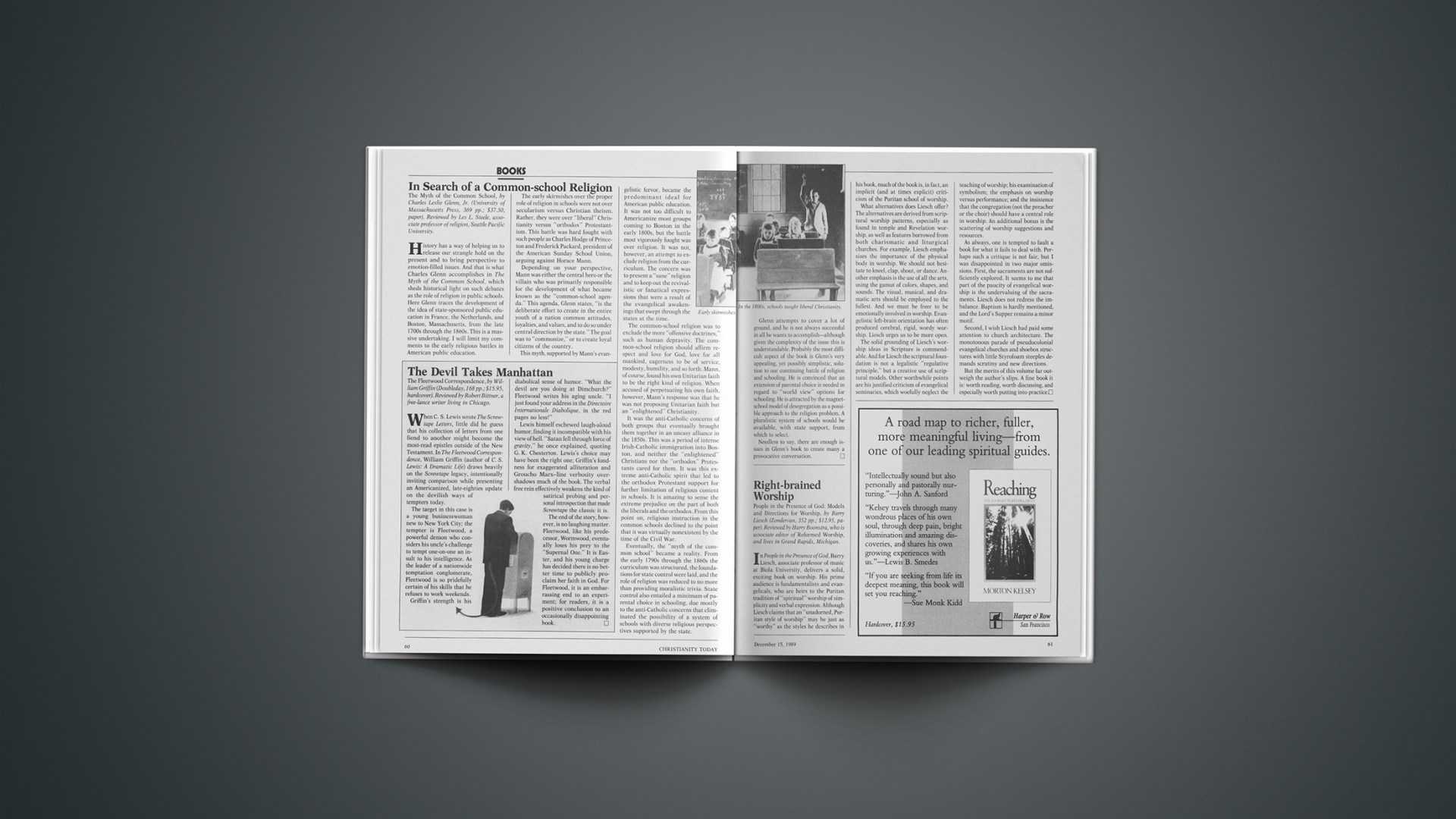Twenty years ago when rock music was a wilderness that baffled the church, Randy Matthews claimed it as his own mode of communicating the gospel. He still reaches for the unconventional, CT talked to Matthews while he was on tour earlier this year for Compassion International.
What was contemporary Christian music like when you started 20 years ago?
The music had a very innocent heart—you weren’t doing it for money, power, or fame, but because you wanted to minister.
If you were to do it all over, what would you do differently?
I would take counsel from people besides musicians. You have to be what God has created you to be, no matter what others say. We have to be true to our relationship with Jesus. If I could have heard that from a 75-year-old man I respected, it might have kept a lot of bitterness and hurt out of my life.
Why did you undertake the Compassion International tour?
I went to Ecuador to meet the child my wife and I sponsor and stepped into a whole new reality when I saw the conditions these children live in, and the good that comes through sponsorship. I told Compassion I wanted to do more. Thanks to God and some hard-working people, the tour has been very successful. When I started singing Christian rock and roll I was a street musician, and what I ate was not nutritional. So I feel strongly about this cause and about children being in that situation.
What advice would you give a Christian artist or musician just starting?
First I’d say that if you can do anything but this, do it. It’s not an easy lifestyle. You have to work hard and be deeply involved with a home church that supports you in their thoughts, prayers, and attitude. If you don’t, you’ll get eaten up quick.
By Daniel Coran.
ARTBRIEFS
A Junkie’s Habit
Director Gus Van Sant’s brilliant and disturbing Drugstore Cowboy offers a glimpse into the world of a self-described “drug fiend” named Bob, who travels around the Pacific Northwest robbing drugstores—not for money, but for drugs. Based on an unpublished novel by convict and drug addict James Fogle, Drugstore Cowboy follows Bob and his entourage from robbery to robbery, high to high.
The message is clear: Junkies take drugs because they like them. Drugs are Bob’s religion, his love, and his life. When he is high, the world takes on a rosy hue unaffected by the temporal worries of the day. When he is straight, Bob can think only of how to get high again.
Drugstore Cowboy is not some moralistic docudrama all wrapped up in a neat package. But for Christians interested in the salvation of drug addicts, the questions with which we leave the theater can help us begin to understand the junkie’s point of view.
Strictly Nonpassionate
Tired of prayer meetings where people all sit around in a state of petrified inactivity? Video Productions of Havertown, Pennsylvania, has put together a short video to help sedentary Christians learn a few traditional Hebrew dance steps—perhaps the kind David used when he kicked up his heels in praise.
“Dance for Joy” begins with a few one-liners from the Psalms that lay the theological groundwork for praising the Lord with footwork. After our fears are laid to rest, we watch as the Hora, Mayim, Yemenite, and Tcherkessia are demonstrated, step by step. Interspersed are shots of a large congregation gamboling en masse. The dances are easy, fun, and well-suited to large groups.
For those of us who might be nervous about the biblicity of dancing, we are assured at the outset of “Dance for Joy” that the moves presented are strictly “nonpassionate.” But was David ever nervous about a passionate display of emotion when dancing before the Lord? Kicking up our heels a bit might do us all a world of good.
Uncompromising Keith Green
Like most real prophets, the late Keith Green is a tough act to follow. For one thing, it’s not exactly good business sense to sell your records for whatever people are willing to pay. But in the years since his untimely death, Keith’s wife, Melody, has worked to foster and extend his ministry. Now she has written a book about her husband and their ministry together (Sparrow Press).
No Compromise: The Life Story of Keith Green follows Keith from age 11, when he was upstaged by Donny Osmond as the country’s preteen superstar, through years in the Jesus movement, to establishment of Last Days Ministries for the homeless and poor through evangelism and outreach, to a successful recording career, and finally to death in a plane crash in 1982.
Sparrow Press has not compromised in marketing and promoting the book to Christian bookstores: a six-figure initial print run is nothing to sneeze at. Though real prophets don’t need marketing campaigns, this one is designed to introduce a challenging voice to those with eyes to read. Let’s hope so.
By Stefan Ulstein and Daniel Coran.










